Blog by Becky Kenton-Lake, Stop Climate Chaos Scotland Coalition Manager
At a time when political consensus on climate is faltering, Stop Climate Chaos Scotland (SCCS) wanted to demonstrate that public support remains strong. On 18th September we organised a mass lobby of MSPs to ensure they heard directly from constituents about the action they want them to take to deliver real benefits to their lives, their communities and the planet, at a time when a new Climate Change Plan is being drafted and political parties are writing their manifestos for the 2026 election.
A few weeks has now passed since the lobby, and we’ve reviewed feedback and held an evaluation session with members. I’ve finally had a chance to organise some thoughts around what was possibly one of the biggest projects SCCS has undertaken since COP26 in Glasgow.
So – what did I learn from the mass lobby?
Firstly, people really want to talk to their MSPs about climate change and the action they want to see. We were overwhelmed by the interest in coming to the mass lobby. Driven by the incredible support of our 70+ diverse members who promoted it to their audiences, we quickly had hundreds of people sign up, had to book a larger venue…then an additional venue…and then close the events to new sign ups 3 weeks early! A great problem to have and reassuring to find that people still believe that lobbying MSPs can affect change.
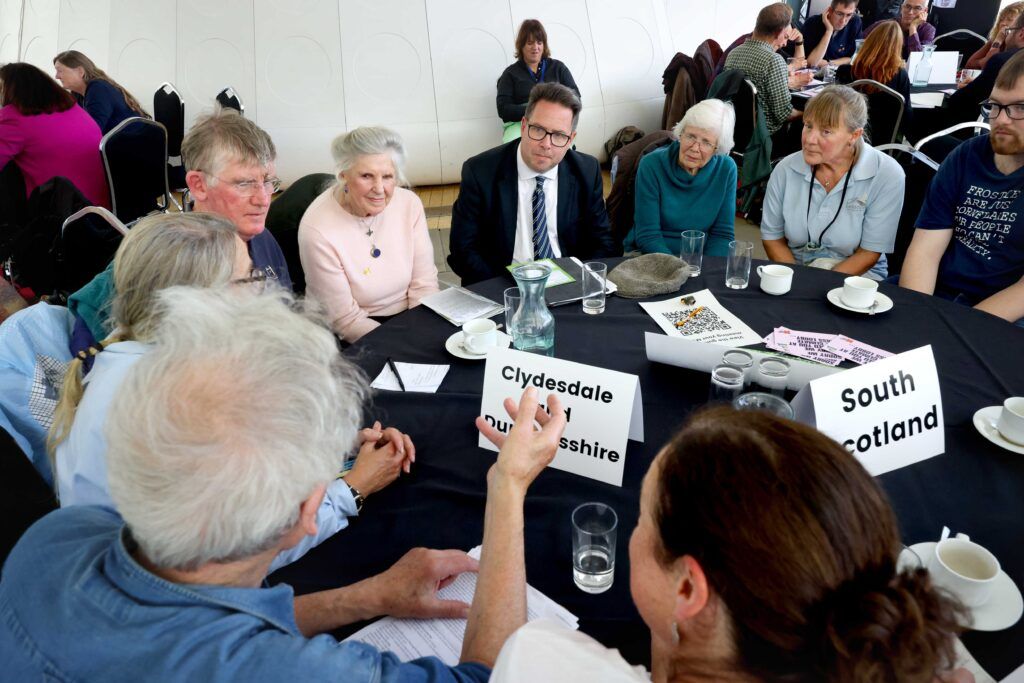
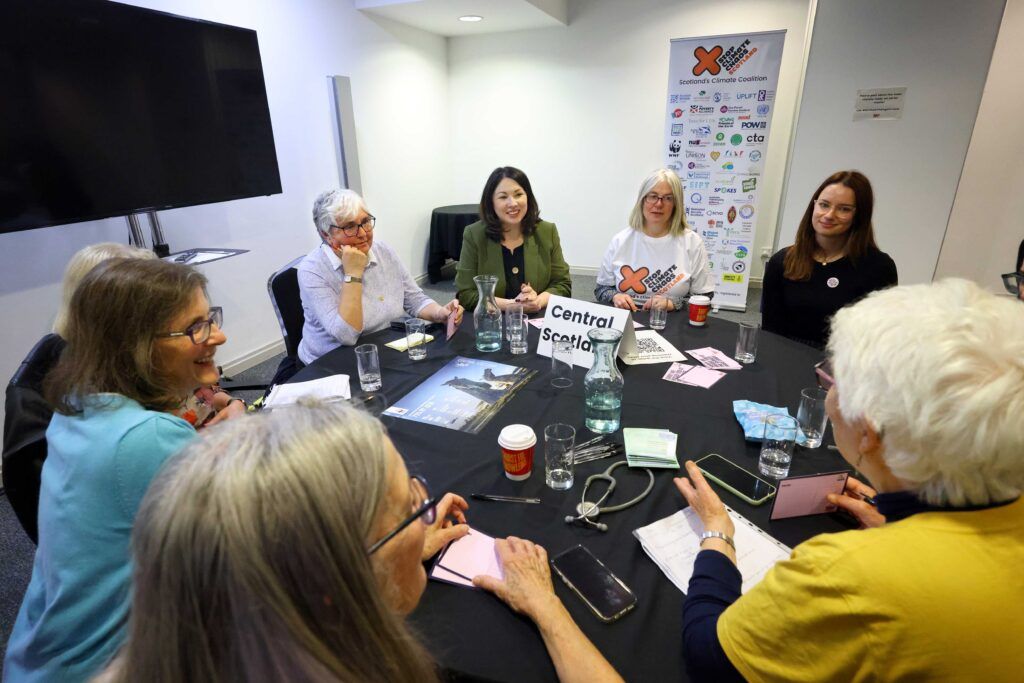
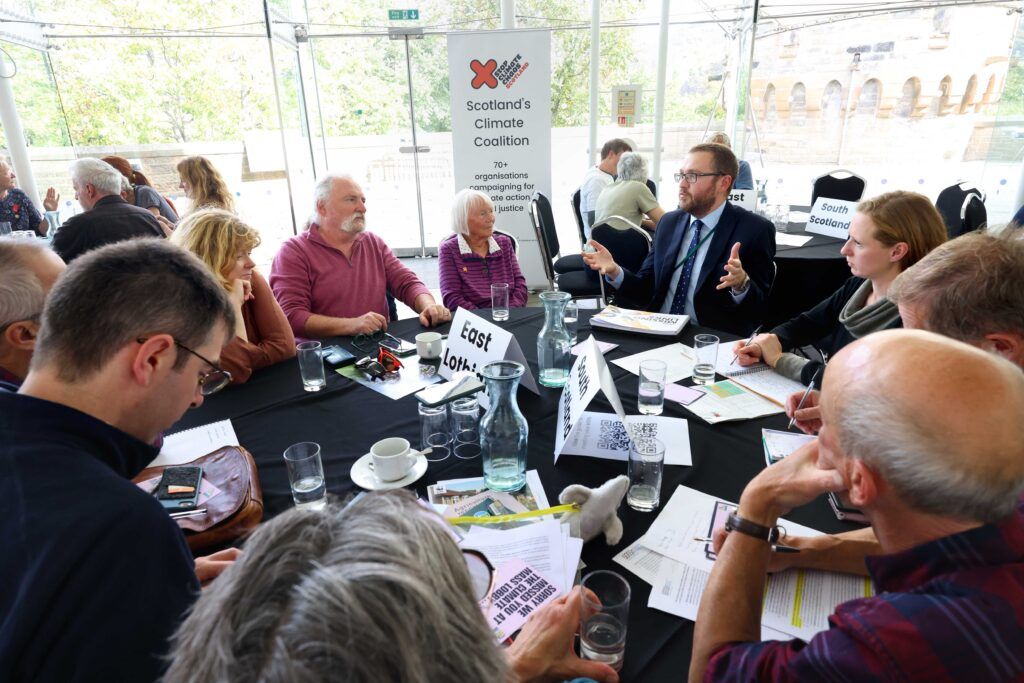
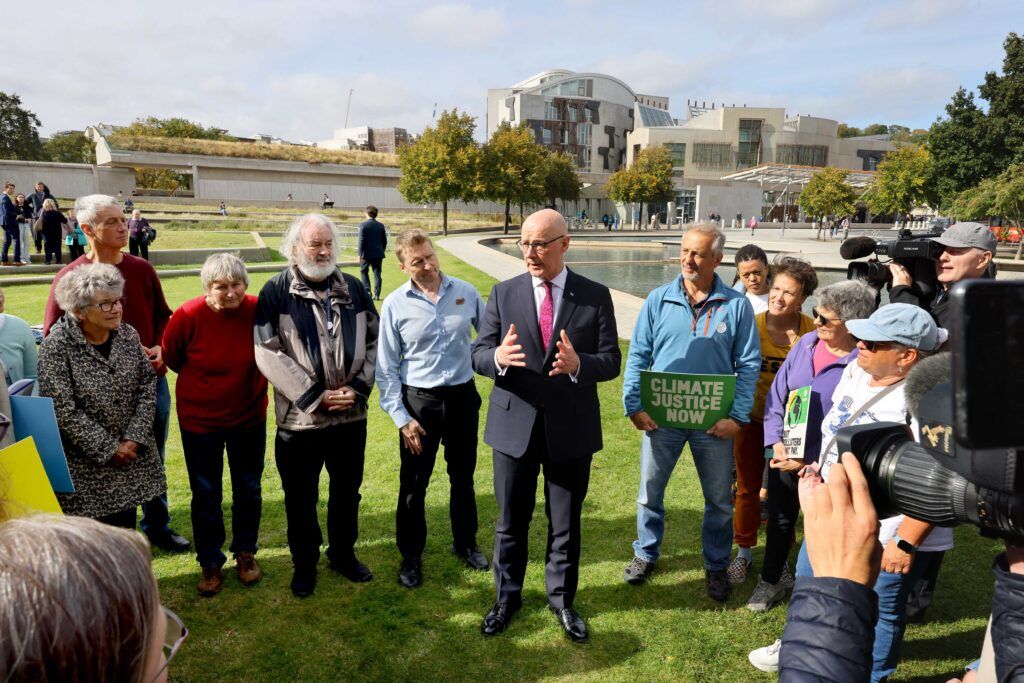
Photo credit: Colin Hattersley
The topics MSPs heard about in the meetings were wide ranging – from international fossil fuel treaties, sewage in Scottish rivers and lowering energy bills, to better cycle lanes, tree planting and private jet taxes. Many were linked to important local issues, yet all were connected to how Scotland can play its part on a huge global challenge, whilst also tackling poverty, improving our health, and securing jobs for the future.
And it wasn’t just experienced campaigners and policy experts who took part: my favourite stat from the post-event feedback form was that 52% of people who took part hadn’t engaged with their MSP directly on climate change before. For them to have the confidence to take this step – hopefully boosted by our pre-event training sessions and detailed guide to taking part – felt incredibly important, and we now have a responsibility to ensure this isn’t the end for their political influencing. By continuing to provide support and opportunities to contact MSPs we can help ensure the impact of the lobby continues well past the day itself and MSPs continue to hear from constituents about climate regularly.
The second learning point was maybe something we already knew or suspected – but that the mass lobby underlined: it’s hard to get MSPs out of Holyrood for an event – even when their constituents are there. The success and impact of the event rested completely on whether MSPs would turn up, which we tried our best to make happen with many emails over several months. While we were very pleased to have the First Minister attend, and have all politicians from parties elected in 2021 and all regions of Scotland represented, it was disappointing that only just over 20% of MSPs attended. This was a particular problem for the Lothian region which was – unsurprisingly for an event in Edinburgh – the region with most attendees, but also had only 3 MSPs attend. We had to spread their time across numerous tables to try to ensure everyone got a chance to meet an MSP and provided postcards so that people could send a message that way, but some still missed out. We will do more thinking about how we can ensure better MSP attendance at future events to ensure they are hearing from constituents – any ideas on this are very welcome!
The final learning point is that the climate and social justice movements continue to be strong, supportive and inspiring. From the hundreds of people who attended a training session and came along, to the many SCCS members who took part in months of planning meetings, to the 50+ volunteers who helped out with meeting facilitation, MSP engagement and attendee registration on the day – it was incredible to see how everyone came together to make the event as successful and impactful as possible, and we couldn’t have delivered an event of this size without so many members and the wider movement being engaged and supportive.
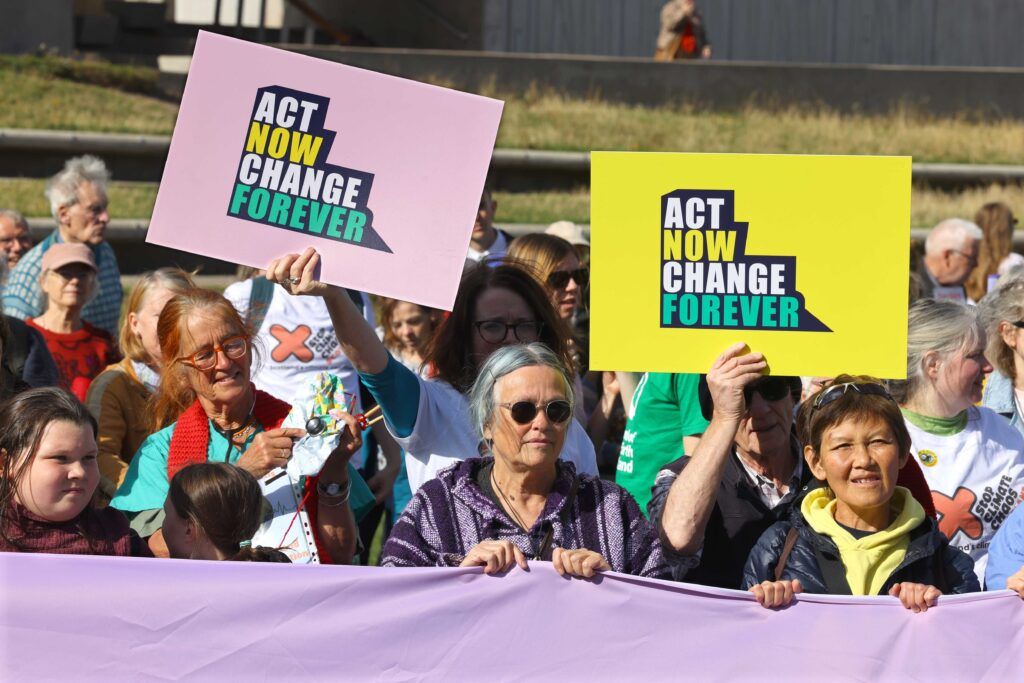
Photo credit: Colin Hattersley
So – what’s next? It’s vital that we build on the energy and momentum created by the mass lobby, and we’ve already heard about numerous follow up meetings taking place, and new connections being made between attendees. Over the next few months we will be working with our members to help people engage with MSPs to make sure we get an ambitious new Climate Change Plan, question party candidates about their commitments to action ahead of the election next year, and get meetings with newly elected MSPs as early as possible.
Organising the mass lobby was a huge undertaking, with many moving and unpredictable elements to manage. We were grateful to have funding from The Climate Coalition towards bringing in a freelance project coordinator to oversee the organisation of the event and work with members to deliver it, as well as donations from Christian Aid, SCIAF, Uplift, Oxfam, WWF and Quakers. We were also very grateful that the project coordinator was Emilia Hanna, who brought extensive experience both of campaigning and delivery, embraced the joy and chaos that coalition working can be and brought so much positive energy and organising skills.
There is so much more to do to drive action and rebuild political consensus on climate – but the mass lobby gave me hope that the movement has the widespread support and energy to step up to the challenge and drive progress.